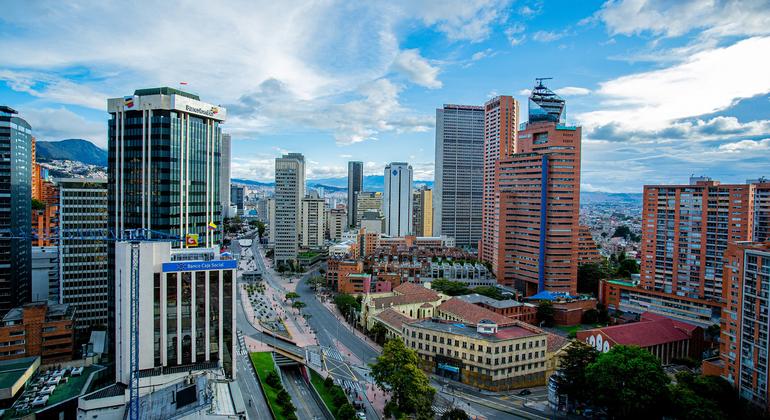Certainly! Here’s the translation into American English:
—
The heartbeat of modern urban life is increasingly digital. Traffic sensors, early warning systems, participatory planning platforms, and geospatial data are transforming not only how cities are designed and managed but also how people experience them. In this context, a crucial question arises: how can innovation truly benefit people in an environment of rapid urban growth?
This question is addressed on World Cities Day, which in 2023 will be celebrated in Bogotá, Colombia, under the theme “People-Centered Smart Cities.” The event, organized by UN-Habitat, will bring together mayors, urban life experts, and community leaders from various countries to discuss how data, design, and digital tools can help build more just, sustainable, and inclusive communities.
By 2050, it is estimated that nearly 70 percent of the world’s population will reside in urban areas, intensifying the demand for housing, services, and adaptation to climate change. UN Secretary-General António Guterres emphasized in his message that innovation must close gaps rather than widen them. “A truly smart city puts people first, especially the most vulnerable, and seeks equity and sustainability for all,” he stated.
Bogotá is a clear example of an innovative approach to urban experimentation and has been globally recognized for its ability to integrate technology and citizen participation. Landmark projects like the TransMilenio transport system and the Ciclovía, which transforms streets into community spaces every Sunday, demonstrate how urban design can foster social connection and sustainability. Elkin Velásquez, regional director of UN-Habitat for Latin America and the Caribbean, highlighted that the celebration in Bogotá will stimulate a dialogue on how technology can improve quality of life and promote community cohesion.
Among the attendees will be Carlo Ratti, architect and director of the MIT Senseable City Lab, who proposes the evolution towards a “perceptive city,” where technology is used to better listen to and address citizens’ needs. Ratti has praised Bogotá’s leadership in urban experimentation, suggesting that local projects can have a global impact.
The people-centered approach is exemplified in programs like Ecobarrios and Mi Casa, as well as in digital initiatives like Chatico, a virtual agent that uses artificial intelligence to improve access to public information. Anacláudia Rossbach, executive director of UN-Habitat, emphasized the importance of these examples in illustrating how technology can benefit communities.
World Cities Day marks the culmination of Urban October, a monthly campaign dedicated to promoting sustainable and inclusive urbanization. This celebration aims to leave a legacy of collaboration, learning, and commitment toward a more equitable urban future. Rossbach stated that the goal is to highlight the creativity of cities in developing people-centered approaches and to strengthen cooperation to ensure that innovation serves humanity. The challenge for cities is clear: to ensure that smart solutions maintain a humanistic focus.
—
Let me know if you need anything else!
Referrer: MiMub in Spanish











